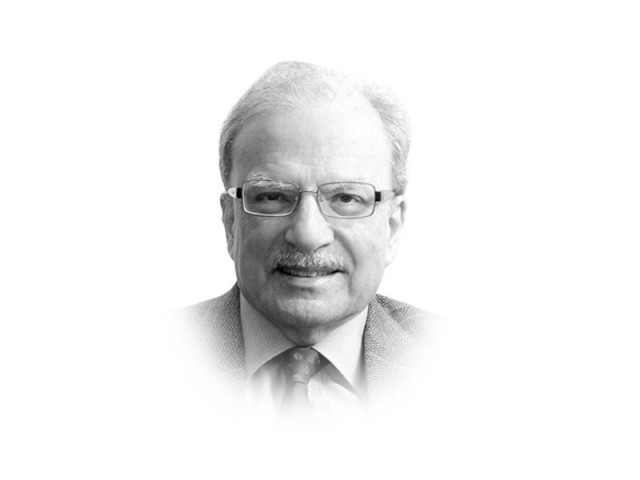What the Hamburg summit means to the world
The latest G-20 summit was held in Hamburg under darkening economic and political clouds

The writer is a former caretaker finance minister and served as vice-president at the World Bank
The latest G-20 summit was held in Hamburg under darkening economic and political clouds. The United States was responsible for most of the gathering darkness. The promise of a “Trump bump” that was supposed to result from lowered corporate taxes and reduced regulations, infusion of large amounts of public money into rebuilding and improving the country’s rapidly deteriorating physical infrastructure, and imposition of tariffs on imports to protect several domestic industries that had come under pressure did not materialize. President Trump had himself declared that his policies when he entered office would increase the rate of GDP growth to 4% a year, doubling the tepid 2% increase during the eight years of recovery from the Great Recession of 2007-09. The current recovery is the third largest in history but the rate of growth has remained modest.
Just before leaving for Hamburg Trump tweeted that “things are starting to kick in now.” That was not the case according to the Federal Reserve Bank of Atlanta’s widely followed “GDP now” analysis. It expected the just ended second quarter growth to come in at 2.7 percent, more than a full percentage point below the May 2017 performance. The New York Fed’s “Nowcast” was even lower, just 1.9% for the second quarter. The diminishing expectations are reflected in the dollar’s recent slump.
The global economy did not need a jolt at this delicate moment but that is what it got from the G-20 Hamburg meeting. President Trump was the leader giving it the shock, using climate and trade as the areas where the United States indicated that it would follow its own interests, leaving behind the collective approach that had defined the post Second World War global order. Trump arrived for the meeting having walked away from the Paris climate agreement and also after pulling out of the Trans-Pacific Partnership arrangement painstakingly worked upon by Barack Obama over a period of two years. He had also threatened to impose stiff tariffs on imports of steel into the United States. Not well versed in established principles and practices in international economics, the new American president had not recognised that modern trade is more about rules and standards than about tariffs. Had he done that he would not have abandoned the TPP so readily.
The way the European Union has evolved provides a good example of why and how regulation regimes have acquired such importance in global trade. When a decade ago, the EU introduced one of the world’s toughest regimes to control the use of chemicals, British companies were alarmed. They campaigned against it. However, there has been a total change of heart and as Britain prepares to leave the Union, most British business associations want London to keep the European regulatory system in place.
While the decision on the Paris accord could be understood in terms of the skepticism about human contribution to global warming on the part of some among Republican Party leaders, the move against the TPP was difficult to comprehend. There was agreement among trade experts that the TPP would have introduced American corporate practices to the other eleven members of the planned arrangement. The possible move on steel seems to have been motivated by the need to discipline China. Although the world’s largest producer of steel, China did not export significant amounts to America. That is done by Germany, Japan and South Korea. European nations made it clear that they will not sit back and watch the dismantling of the global trade system that was assembled after a great deal of collective effort and will hit the US with tariffs on the products coming into Europe from that country. The world may be edging towards a trade war.
Although Chancellor Angela Merkel was able to paper over most of the differences between the United States and other members of the G-20 group, it had a cost. At the end, the leaders produced a unanimous communiqué. An exception was made for the United States because of the country’s withdrawal from the Paris climate agreement. Language about protectionism and unfair trade was less demanding to accommodate Donald Trump’s preference for managing trade relations on bilateral basis. As a professed dealmaker he wanted trade to be conducted as a zero sum game in which the stronger party won while the weaker one lost.
These concessions to the United States led some critics to rename the G-20 forum the G-19+1. Nicholas Burns, a former top State Department official and US ambassador to Nato, summed up well the outcome of the Hamburg summit. “The US can’t lead effectively if we are constantly criticising our allies. Trump seems to regard Germany and many other European countries more as competitors than as strategic allies. This is a great mistake of judgment about most of our friends in the world,” he said.
Published in The Express Tribune, July 17th, 2017.
Like Opinion & Editorial on Facebook, follow @ETOpEd on Twitter to receive all updates on all our daily pieces.















COMMENTS
Comments are moderated and generally will be posted if they are on-topic and not abusive.
For more information, please see our Comments FAQ